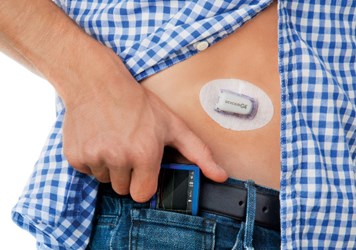CEO Touts Dexcom's Diabetes Management Success, Says CGM Launch With Verily "On Track" For 2018

Dexcom CEO Kevin Sayer spoke candidly about his organization’s recent growth and the associated “growing pains” as he laid out the company’s strategy moving forward. Despite what he calls the “most complicated product launch in our history” — the G5 continuous glucose monitor (CGM) — Sayer reported a 60 percent bump in Q1 diabetes management system revenue, gleaned by far outperforming market competitors, including Medtronic, J&J, and Abbott.
Steven Pacelli, Dexcom’s executive VP of strategy and corporate development, put Q1 revenues at $116 million in the first quarter, an 11 percent decrease from the previous quarter, but a 60 percent increase over the same quarter last year. According to Pacelli in an earnings call, DexCom sales are traditionally slower in the first quarter of the year.
Sayer pointed out several major players in diabetes management systems — J&J, Abbott, and Roche — have experienced double digit decreases in diabetes revenues year-over-year. Though Medtronic has not released its Q1 report yet, global numbers put its diabetes business growth at 11 percent, said Sayer.
“We grew 60 percent in the first quarter of 2016 on top of 55 percent last year,” said Sayer, adding that DexCom also had doubled its patient base in the last 15 months. “While our growth has enabled us to make significant investments for the future, we have experienced some growing pains in the past few months.”
Sayer went on to discuss the effects of a recent recall on receivers, which were experiencing problems with audible alarms and alerts that notify patients in the case of a hyper- or hypo-glycemic event. Dexcom has notified patients, recalled the devices, and is working closely with the FDA to resolve the issue.
“While the agency has not approved any of our proposed actions, the FDA is aware of them and we are confident that they will continue to work with us to implement features to improve patient safety,” said Sayer, adding that the financial toll — which could reach $5 million — will depend on the FDA’s suggested course of action.
The recall came amidst the rollout of the G5 CGM, which — due to an earlier than expected FDA approval — was launched four months after the G4 Platinum. Sayer admitted that the G5 launch was more complicated than the company anticipated and “fell short from an infrastructure perspective.”
Sayer explained that the more complex G5 system requires twice as much customer support as the G4, with a much broader group of patients. Despite some hiccups with the launch, Sayer said that consumer reaction to the G5 had been very good; an Apple Watch app for the device launched recently, and Dexcom anticipates the launch of an app for Android users later this year.
Progress with the G6 CGM and Dexcom’s partnership with Verily, which is set to launch its first product in 2018, are very much “on track,” said Sayer.
Also on the horizon is an FDA advisory panel set to discuss Dexcom’s proposed labeling that would not require a finger stick before making treatment decisions with the CGM. Sayer noted that this labeling is required by Medicare to cover CGM systems, and that a positive decision from the panel “could very well set the tone for all future CGM products.”
“Our results speak for themselves, with 60 percent sales growth in Q1 we believe Dexcom’s competitive position is as strong as it’s ever been,” said Sayer. “As I look at the innovation in our pipeline, we are only scratching the surface of the opportunity ahead.”
